Will, going to and the present continuous 3 common future forms

English Intermediate I U6Will, going to, simple present and present
Talking about the future. In English, we can use will, be going to, the present simple or present continuous tenses, phrases like about to, and verbs like aim and plan - all to talk about the.
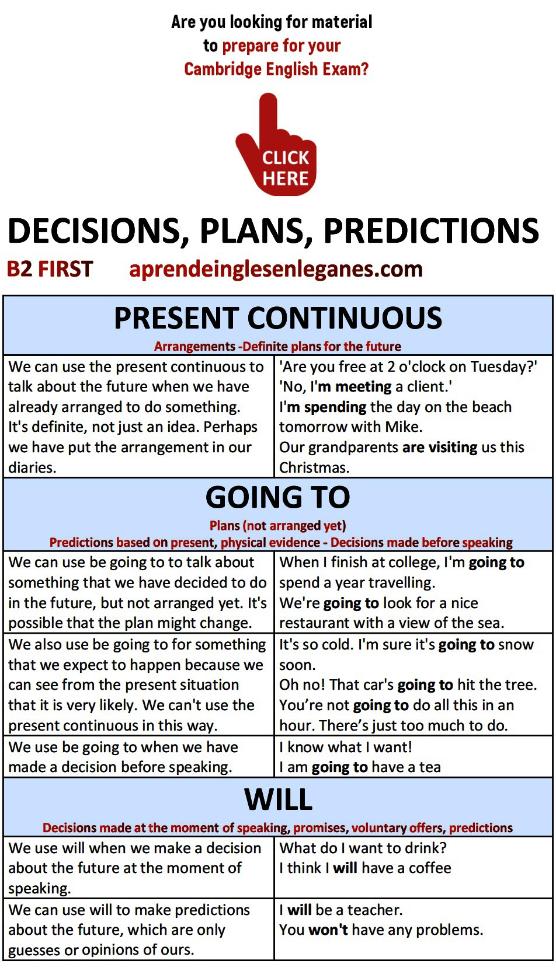
bağlantı kesildi gururluyum eğlence present continuous vs be going to
Will (future simple) is used to make predictions that are based on personal judgement, opinion or intuition: Be going to is used to make predictions that are based on present evidence. The predicted event is either very near (and can be seen) or seems sure to happen: My sister's going to have a baby. (we can see that she is pregnant)

decisions plans and arrangements Learn english words, Learn english
Look at those clouds! It soon. (rain) is going to rain. 4. I hope you after the party. (stay) will stay. 5. Rachel thinks you what she means soon. (understand) will understand.

Future plans will, going to and present continuous NO. 1 INSTITUTE
Transcript. We have different ways of talking about the future. We often use going to (+ infinitive), the present continuous (to be + -ing) or will (+ infinitive). The structure we use depends on the function of what we want to say, whether we are talking about arrangements, plans, predictions, etc.. I thought will was the future tense in English.
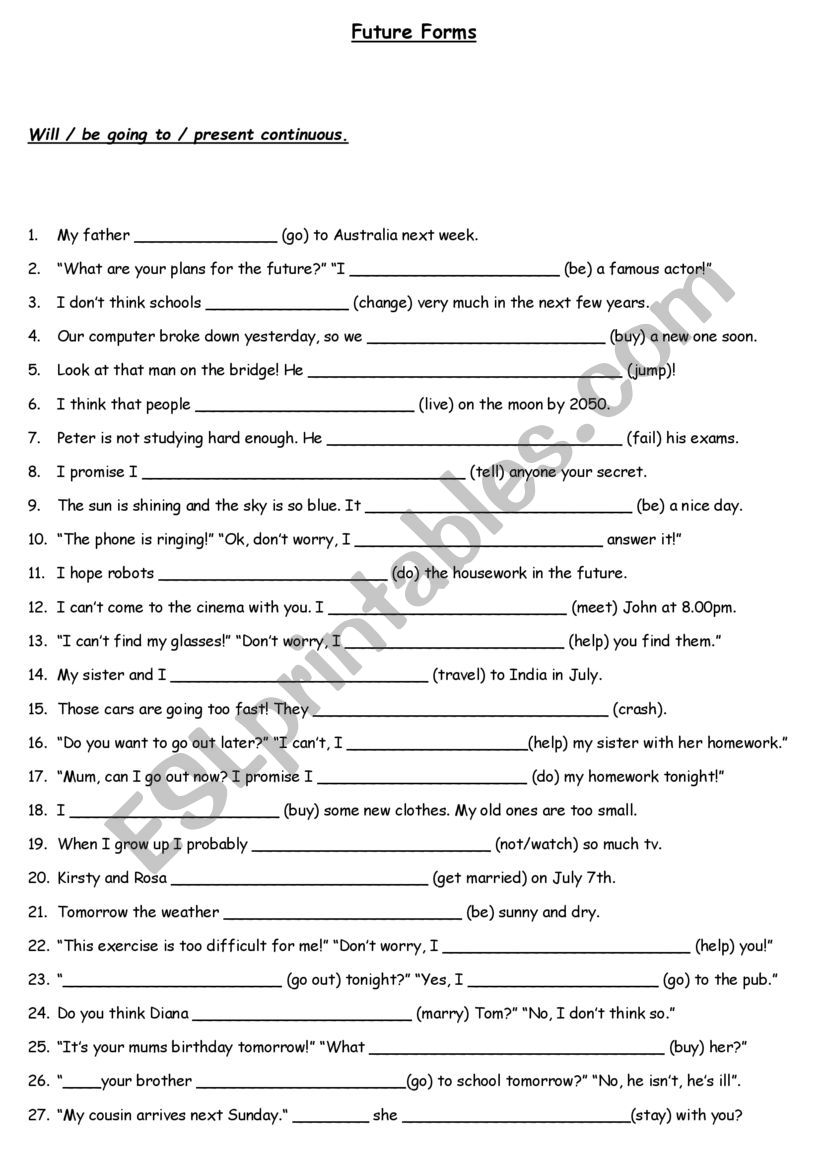
Future will, going to, present continuous ESL worksheet by teachkirst
Look at these examples to see how will, going to and the present continuous are used. Oh great! That meeting after work's been cancelled. I'll go to that yoga class instead. I'm going to try to visit my relatives in Australia this year. The restaurant is reserved for 8. We're having a drink at Beale's first. Try this exercise to test your grammar.

Will Be Going To Present Continuous Liveworksheets
Revision ESL printable worksheet on future forms WILL, BE GOING TO and Present Continuous. Solutions are included at the end of the handout. Besides the grammar drills the printable contains a speaking task for pairs: student A is the fortuneteller, who is going to tell the future for his or her client (student B).

Mixed Verbal Tense Present Simple, Present Continuous, Past Simple C2A
How can you use "GOING TO" for the future? What about the PRESENT CONTINUOUS TENSE? In this English grammar class, I'll explain when and how to use these two.

2 pages Will future/ Going to/Present Continuous/ Present Simple
The form 'going to' is used when want to talk about a plan or intention in the future. It is something that you plan or intend to do but it is not yet fixed as an arrangement. e.g. I'm going to book my ticket to Spain at the weekend. Here, you plan to do this so you could say you are around 80% sure this will happen as that's what you.

Will, to be going to or present continuous? Brainly.lat
When we use the present continuous for arrangements, we must always include when ( at 7, this evening, next month, etc.) in the sentence. I'm seeing the dentist at 6. We are getting married next week. I'm flying to New York tomorrow morning. We can also use be going to for future arrangements. I'm going to play tennis with Elisabeth today.
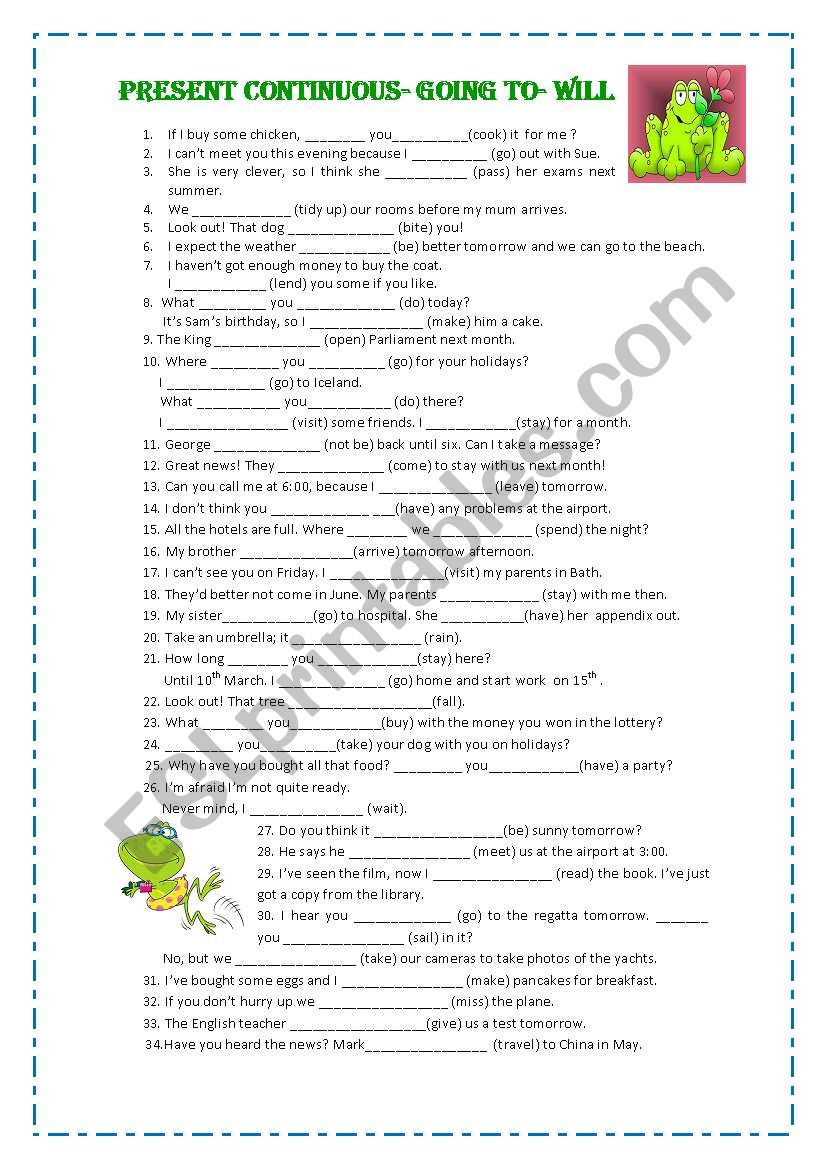
Will Going To Present Continuous Exercises
Will, Be Going To vs. Present Continuous. We can use three verb forms to talk about the future: will, going to + infinitive and the present continuous tense. Will + infinitive. The simple future tense (will + first form of the verb) has several functions. For example, it can be used to make a prediction about the future.
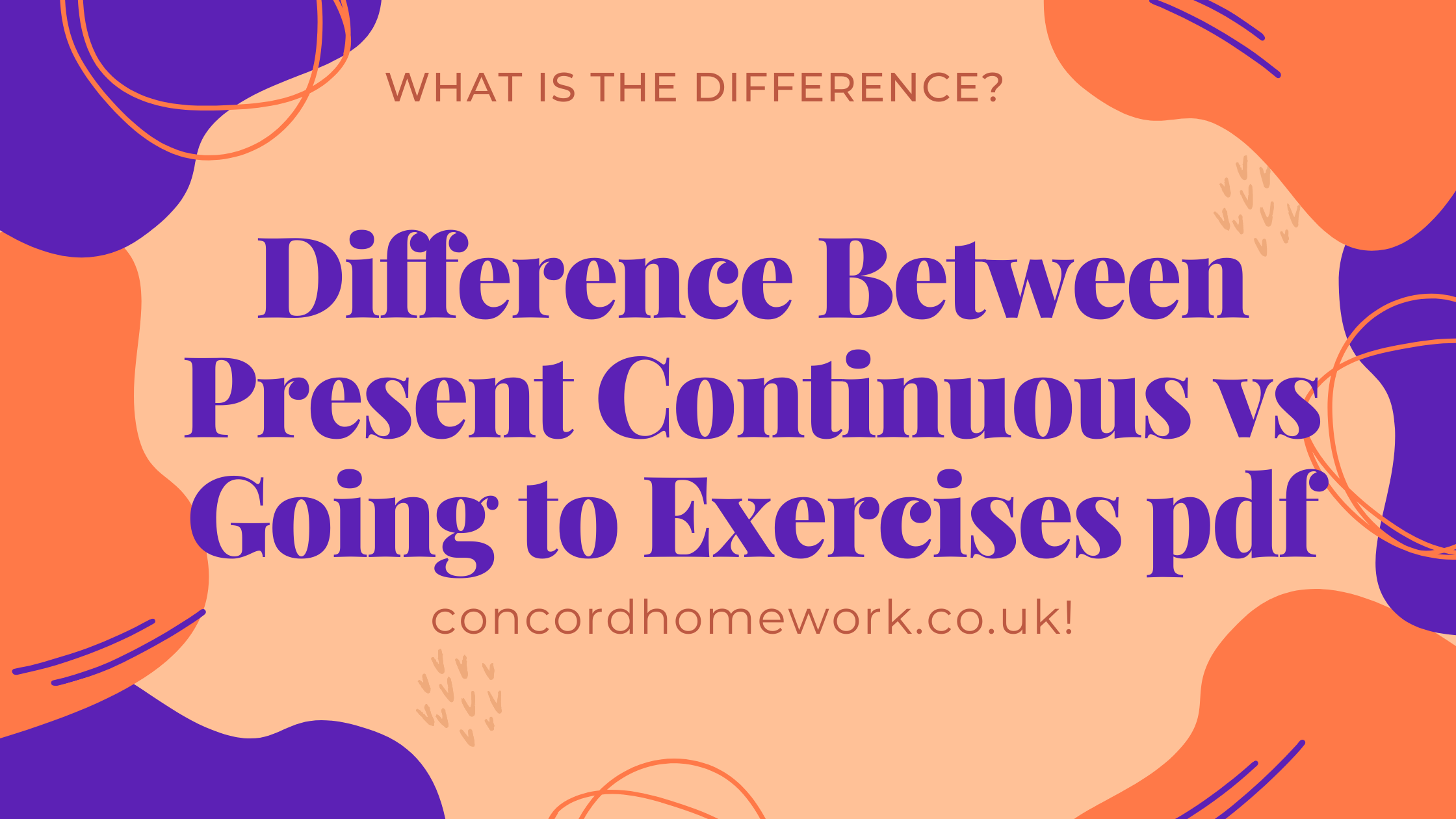
Difference Between Present Continuous vs Going to Exercises pdf
Going to - English Grammar Today - a reference to written and spoken English grammar and usage - Cambridge Dictionary
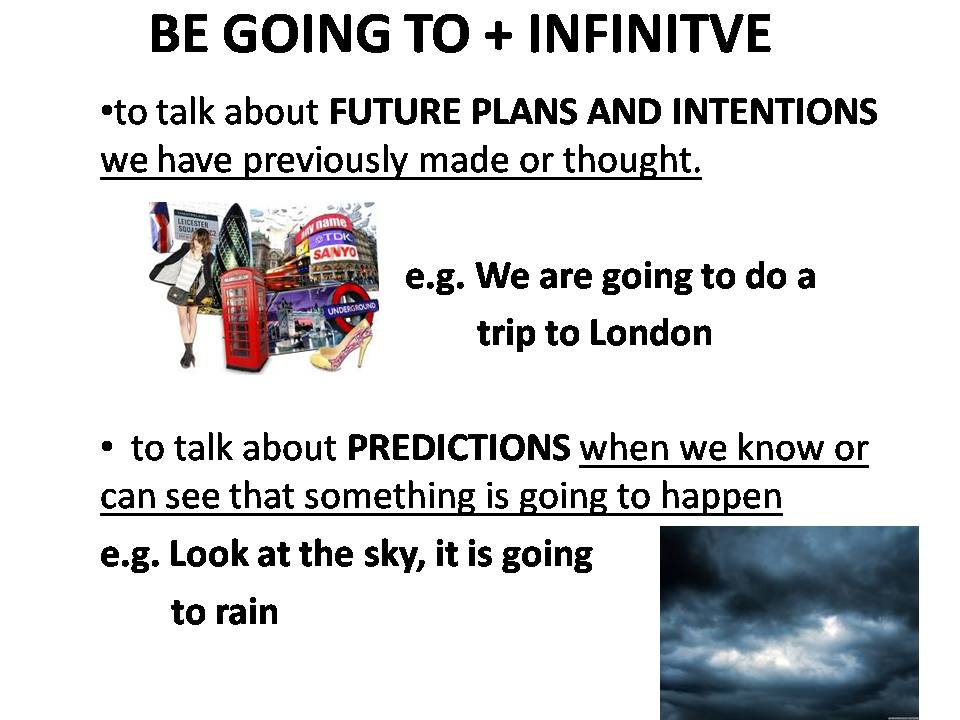
Future forms «Be going to» and present continuous Road to English A2
Learn future tenses in English conversation! There are different ways to use future tense. in this video, we show you how to speak about the future with four.

Going to and Present Continuous for Future Exercises Pdf
There are two future forms used in most conversations: the future with "will" and the future with "going to." The main difference between the two forms is that "going to" is used for plans and intentions made before the moment of speaking, and the "will" to speak about the future at the moment of speaking. Study these basic forms and then use.

Present Continuous vs. Going To LanGeek
Future: present continuous to talk about the future ( I'm working tomorrow ) - English Grammar Today - a reference to written and spoken English grammar and usage - Cambridge Dictionary
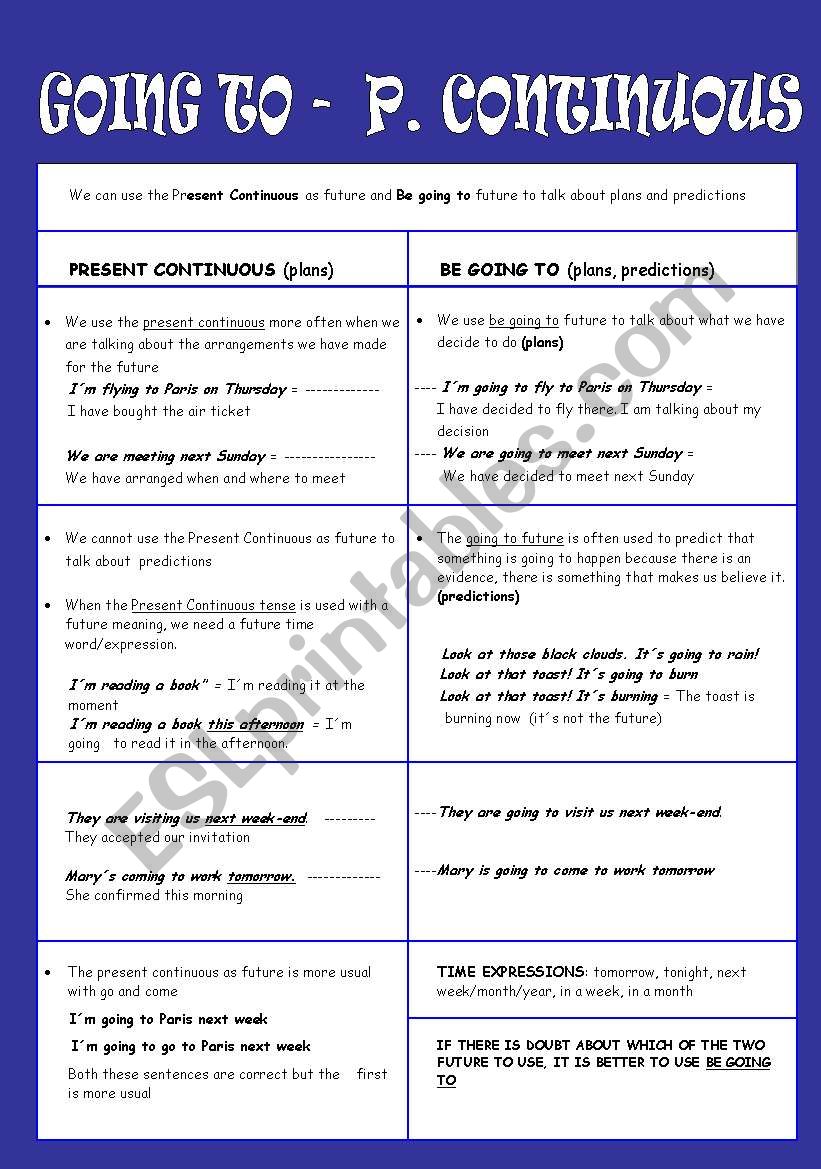
Will Going To Present Continuous Exercises
When we use the present continuous for arrangements, we must always include when (at 7, this evening, next month, etc.) in the sentence. I' m seeing the dentist at 6. We are getting married next week. I' m flying to New York tomorrow morning. We can also use be going to for future arrangements. I' m going to play tennis with Elisabeth today.
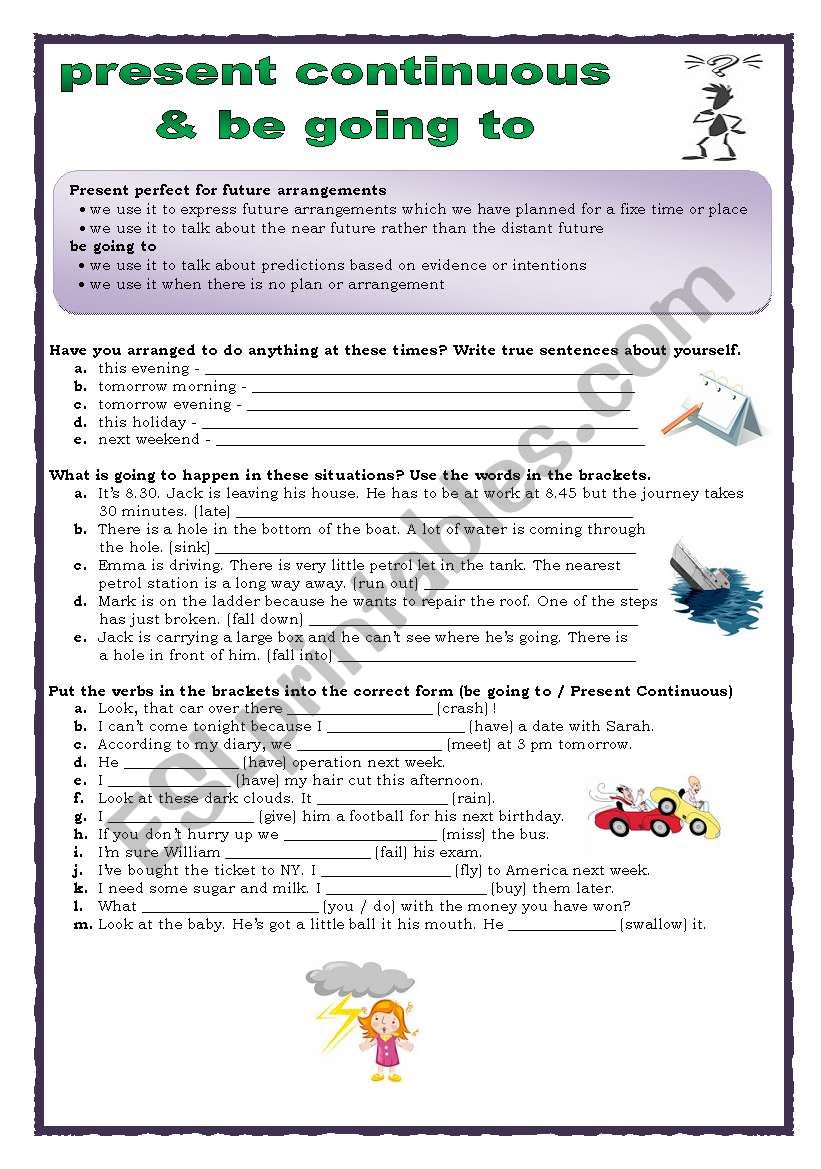
Will Going To Present Continuous Exercises
Other points about the future: We use the present continuous tense for definite future arrangements. Often, it doesn't really matter if we choose 'be going to' or the present continuous. In the following example, there is really very little difference in meaning: I'm going to the cinema tonight. I'm going to go to the cinema tonight.